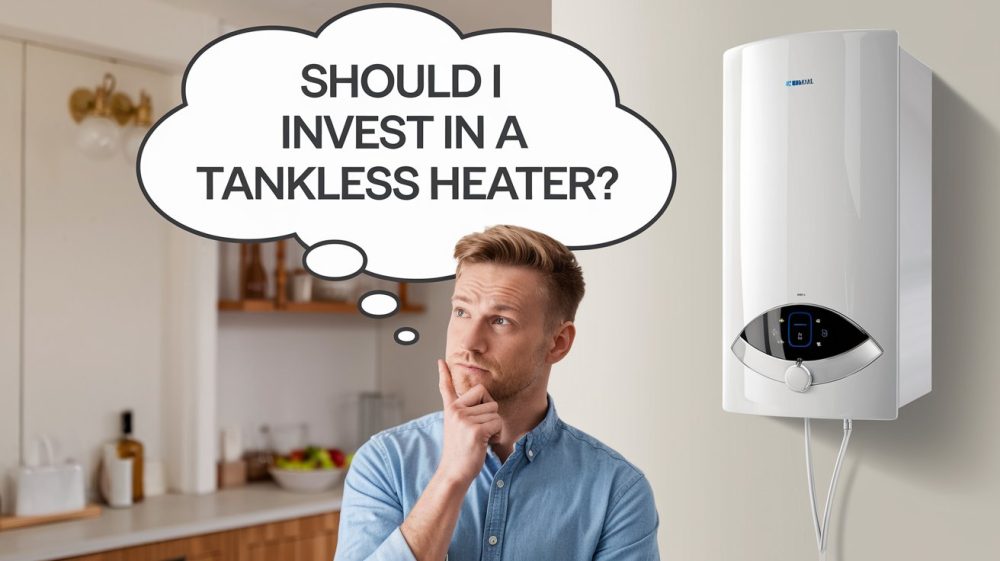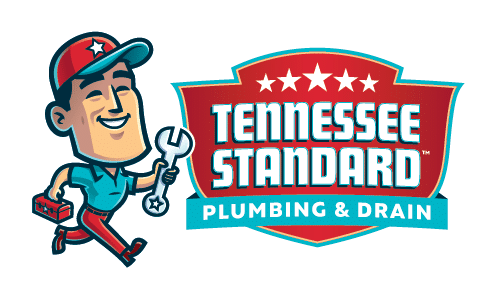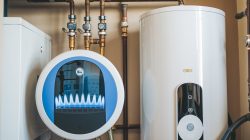
What to Consider Before Buying a Tankless Water Heater for Your Home
Table of Contents
- Initial Installation Costs
- Size and Capacity
- Energy Efficiency and Savings
- Type of Fuel: Gas vs. Electric
- Water Quality and Hard Water Issues
- Installation Requirements
- Maintenance Needs
- Noise Levels
- Environmental Impact
- Warranty and Customer Support
- Ready to Make the Switch to a Tankless Water Heater?
When you’re looking to upgrade your water heating system in Knoxville, you might consider a tankless water heater. These heaters offer great benefits, but they’re not always the right fit for every home. Before you make the switch, there are a few important factors to think about.
From the initial costs to installation details and long-term savings, knowing what to expect will help you decide if a tankless water heater is the right choice for your needs.
Initial Installation Costs
First things first: the cost. While tankless water heaters are a great long-term investment, they do come with some upfront costs. The unit itself can range from $1,000 to $3,000, depending on the brand, size, and whether it’s gas or electric.
On top of that, installation can add another $500 to $1,500. This is mainly because tankless units often require modifications to your home’s plumbing, electrical wiring, and venting (if you’re going with a gas-powered unit).
These additional expenses can make tankless heaters more expensive than traditional tank models, which tend to cost between $500 to $1,500, including installation.
Why this matters:
If you’re on a budget, you might want to plan for these extra costs, but remember, tankless systems last longer and can save you more money in the long run. It’s all about that initial investment paying off over time.
Size and Capacity
Next up: size and capacity. When you’re upgrading to a tankless water heater, it’s important to get the right size for your needs. Unlike traditional water heaters, which hold a set amount of hot water in a tank, tankless units provide hot water on demand.
For homes in Knoxville, where space might be limited in older houses or apartments, a compact, efficient tankless unit can be a real game-changer. However, you may need a larger system if your home has multiple bathrooms or high water demand.
Why this matters:
You don’t want a unit that’s too small and find yourself without hot water. A professional plumber in Knoxville can help you size the system properly based on your household’s water usage.
Energy Efficiency and Savings
One of the biggest selling points of tankless water heaters is their energy efficiency. Unlike traditional water heaters, which constantly reheat water even when you’re not using it, tankless units only heat water when you need it.
This on-demand heating can reduce energy consumption by as much as 30%—especially if your household uses less than 41 gallons of hot water per day. Even larger households using 86 gallons or more per day can still see energy savings of up to 14%.
Why this matters:
Over the lifespan of the unit, you could save hundreds of dollars on your energy bills. Plus, many models are ENERGY STAR® rated, meaning they qualify for rebates and tax incentives, making them even more attractive for Knoxville homeowners.
Type of Fuel: Gas vs. Electric
Another thing to consider is whether to go with a gas-powered or electric tankless water heater. Each type has its pros and cons.
- Gas-powered units typically provide higher flow rates and can heat water faster. However, they need proper venting and gas line installation, which can increase upfront costs.
- Electric units are easier to install and don’t require venting, but they might not provide as high of a flow rate, especially in larger homes with heavy hot water usage.
Why this matters:
If you have a natural gas line in your home and need a high-demand unit, gas might be the better choice. But if your home doesn’t have gas or you want something simpler to install, an electric unit could be perfect.
Water Quality and Hard Water Issues
If you live in an area with hard water, it’s worth thinking about how this might affect your tankless water heater. Hard water contains high levels of minerals like calcium and magnesium, which can cause scale buildup inside the heater. Over time, this can reduce the heater’s efficiency and lifespan.
Why this matters:
To keep your tankless system running smoothly, you might need to install a water softener to prevent mineral buildup. Regular descaling and maintenance can help extend the life of your system and keep it working at peak efficiency.
Installation Requirements
Unlike traditional tank heaters, tankless water heaters require professional installation. Gas-powered units need to be vented correctly to prevent dangerous exhaust buildup, while both gas and electric units need to be sized and installed based on your home’s layout.
For Knoxville homeowners, it’s important to hire a licensed plumber who has experience with tankless water heater installations to ensure safety and efficiency.
Why this matters:
Improper installation could result in costly repairs down the line. A professional plumber will make sure everything is set up correctly, saving you time and potential headaches.
Maintenance Needs
Tankless water heaters require less maintenance than traditional models. However, they’re not maintenance-free. To keep your system running smoothly, you’ll need to perform annual descaling (especially if you have hard water) and occasionally clean the filters.
Why this matters:
While tankless water heaters typically require less maintenance than traditional models, it’s still important to schedule regular service from a professional plumber in Knoxville. This helps keep your system in top condition and extends its lifespan.
Noise Levels
Unlike traditional water heaters, which can hum or clank as they heat water, tankless water heaters are surprisingly quiet. Their compact size and efficient operation mean they don’t need to work as hard, which translates into less noise.
Why this matters:
If you plan to install your water heater in or near living spaces, such as a kitchen or bathroom, the quiet operation of a tankless system could be a huge benefit. It’s one less thing to worry about disturbing the peace in your home.
Environmental Impact
Switching to a tankless water heater is a great choice for homeowners who want to reduce their carbon footprint. Since tankless models are more energy-efficient, they consume less fuel and produce fewer greenhouse gas emissions.
Why this matters:
If you’re looking to make a more sustainable choice, a tankless water heater helps you save both money and the environment. Plus, many local governments offer rebates and incentives for energy-efficient home upgrades, making the switch even more appealing.
Warranty and Customer Support
Before you commit to buying a tankless water heater, make sure to check the warranty and customer support options. Most manufacturers offer warranties between 5 to 15 years, depending on the model.
Why this matters:
A solid warranty can give you peace of mind in case something goes wrong. Make sure you also check for responsive customer support in case you need assistance after installation.
Ready to Make the Switch to a Tankless Water Heater?
Tankless water heaters are a smart investment for homeowners who want to save energy, space, and money in the long run. But, before making the switch, it’s important to consider factors like installation costs, sizing, fuel type, and maintenance needs.
If you’re in Knoxville and ready to make the switch, Tennessee Standard Plumbing is here to help. Our expert plumbers will help you every step of the way, making sure the installation goes smoothly and quickly.
Contact us today for expert advice and tankless water heater installation in Knoxville!



